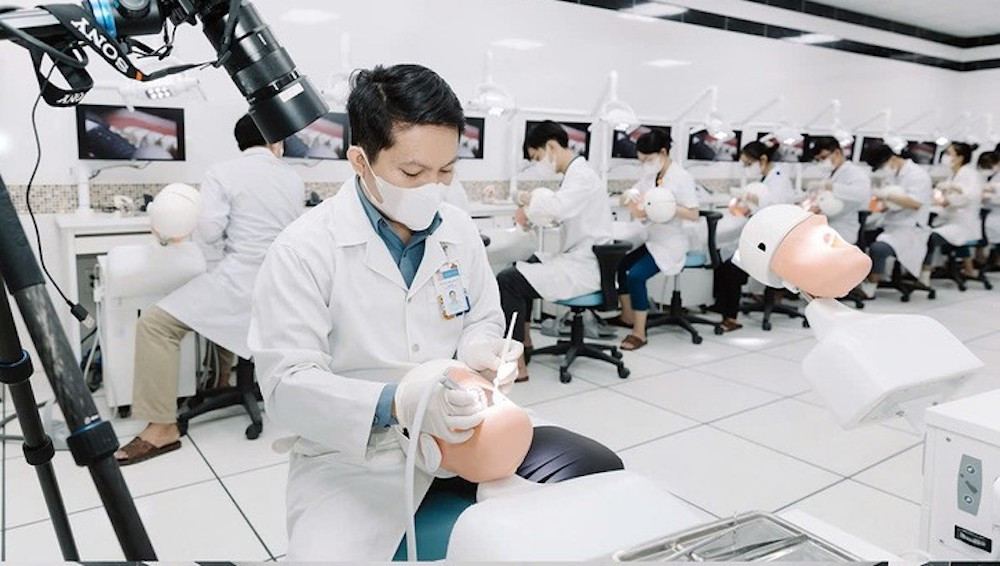
The Prime Minister has recently approved the Education Development Strategy by 2030, with a vision towards 2045. Key goals for 2030 include:
For preschool education: at least 99.5 percent preschool children will have two sessions (morning and afternoon) a day. The quality of nurturing, care and education will be improved to ensure that children develop physically, emotionally, intellectually and aesthetically. This is the time when children’s first aspects of personality take shape, so they need to be prepared well for the first grade.
All preschool teachers must meet the required standards as stipulated in the Education Law.
It is expected that 30 percent of preschools will be privately run, receiving 35 percent of all preschool children.
For general education: 100 percent of students must have two sessions a day. And 100 percent of general school teachers must meet the required standards as stipulated in the Education Law.
It is expected that 5 percent of general schools will be privately run and 5.5 percent of students will attend private schools.
As for higher education: the ratio of university students per 10,000 people must be at least 260, while the number of university students must account for at least 33 percent of young people aged 18-22.
Vietnam hopes that the number of international students following higher education in Vietnam will account for 1.5 percent or higher. At least 40 percent of university lecturers must have doctorates.
Vietnam will carry out curriculum and training restructuring to develop human resources in a way to suit demand for a knowledge-based economy and global integration. The proportion of STEM education must account for 35 percent at minimum.
The number of scientific publications and number of works using science and technology must be 0.6 works per annum per lecturer.
In terms of university rankings: Vietnam strives to have at least five universities listed among the world's top 500; and five in Asia's top 200. Vietnam aims to be among the top 4 in Southeast Asia and top 10 in Asia for higher education systems.
Encouraging entrepreneurial spirit
The strategy also outlines tasks and solutions to achieve these goals, including institutional reforms, educational management and school governance renovation, curriculum and teaching method renovation, and education quality assessment reform.
The general education program needs to be designed to help develop all virtues and capabilities of every student. It is necessary to foster STEM integrated education, promote self-teaching and lifelong learning, and help students choose careers that match their abilities and interests.
The other tasks include implementing career guidance and student streamlining well; encouraging vocational education institutions and enterprises to participate in designing programs and materials; and assessing the results of career education at general schools and continuing education centers.
It is necessary to increase investment resources to elevate higher education quality, fostering significant changes in training quality, scientific research, technology transfer, and innovation to meet human resource demands, especially human resources in fields that serve economic growth. Also, education should also be innovative in management, curriculum, and teaching methods to align with international standards.
The Prime Minister has requested to review, assess and update training programs to include content on fostering an entrepreneurial spirit and innovation, ensuring alignment with practical demands and business needs.
Localities are requested to ensure adequate land allocation for preschool, general, vocational, and higher education institutions; prepare infrastructure to expand development space; and implement a plan for relocating inner-city universities to suburban areas of major cities.
The strategy also emphasizes the need to improve foreign language teaching and learning quality across all educational levels and gradually including English as a second language at schools.
Times Higher Education (THE) has recently released its 2025 World University Rankings by majors. Vietnam has 8 out of 11 majors making it into the global rankings, including Business and Economics, Computer Science, Education, Engineering, Life Sciences, Health and Medicine, Physical Sciences, and Social Sciences.
In the Business and Economics category, several Vietnamese universities ranked fairly high, with HCM University of Economics in the 301st–400th range. Following are institutions such as Vietnam National University, Hanoi; Duy Tan University; Ton Duc Thang University; Vietnam National University, HCM City; and HCM City Open University. Duy Tan and Ton Duc Thang universities also lead in Engineering, Life Sciences, and Physical Sciences.
Thanh Hung